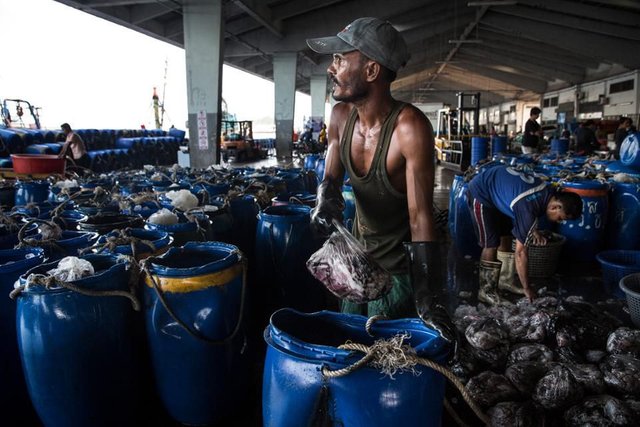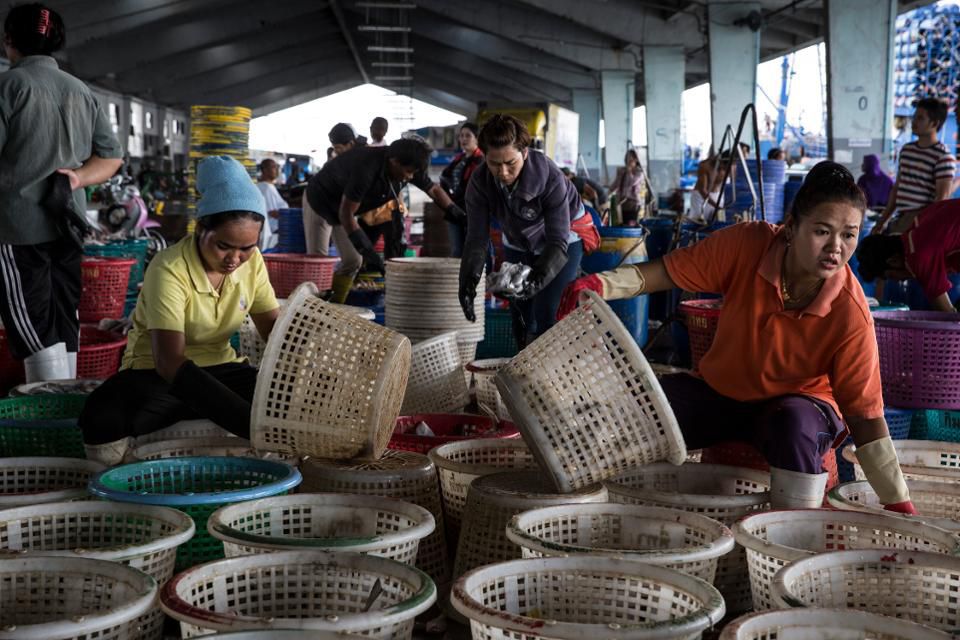 Forbes Feb 14, 2018
Forbes Feb 14, 2018
According to a recent Global Slavery Index report, seafood companies are failing to prevent forced labor and outright slavery in their supply chains.
There are some 300,000 forced-laborers in the Thai fishing industry alone. Many of these people are migrant workers, mostly from Cambodia, Laos and Myanmar.
In 2015, Nestlé--the world’s largest food company--commissioned an audit of its own Thai seafood supply chains. The audit was outsourced to Verite, an NGO, and resulted in a landmark report that documented systemic labor abuses across the seafood industry, in Thailand and beyond.
Since the Verite report, however, investigative reporting by The Guardian has revealed that human trafficking and labor abuses continue, virtually unabated. Human traffickers across Southeast Asia continue to operate, mostly unhindered, with the support of unscrupulous middlemen, subcontractors and labor brokers.
But, could digital technology put a stop to these abuses?

Blockchain technology is being deployed by civil society groups to make supply chains fully transparent , thereby achieving end-to-end traceability. It is a secure, decentralized, distributed digital ledger that stores relevant data regarding any kind of transactional history. It’s a shared, transparent database that’s verifiable by all parties--and it can’t be altered.
lockchain and traceable seafood
Provenance is an early adopter of blockchain technology in seafood supply chains. The London-based NGO has pioneered a system that traces pole and line-caught skipjack and yellowfin tuna in Indonesia, all the way from “catch-to-consumer.”
Starting in the so-called “first-mile,” after catching a fish and attaching an RFID tag, local fishermen use handheld devices to scan and upload the digital information to the cloud. This data then lodges itself in Provenance’s blockchain ledger, creating a permanent record as the fish passes through each stage of the supply chain, from traders and suppliers to processors and canners, all the way to end consumers.
Hi! I am a robot. I just upvoted you! I found similar content that readers might be interested in:
https://www.forbes.com/sites/alexcapri/2018/02/14/how-blockchain-could-help-end-modern-day-slavery-in-asias-exploitative-seafood-industry/
Downvoting a post can decrease pending rewards and make it less visible. Common reasons:
Submit
Congratulations @obiwon! You received a personal award!
Click here to view your Board of Honor
Downvoting a post can decrease pending rewards and make it less visible. Common reasons:
Submit
Congratulations @obiwon! You received a personal award!
You can view your badges on your Steem Board and compare to others on the Steem Ranking
Vote for @Steemitboard as a witness to get one more award and increased upvotes!
Downvoting a post can decrease pending rewards and make it less visible. Common reasons:
Submit